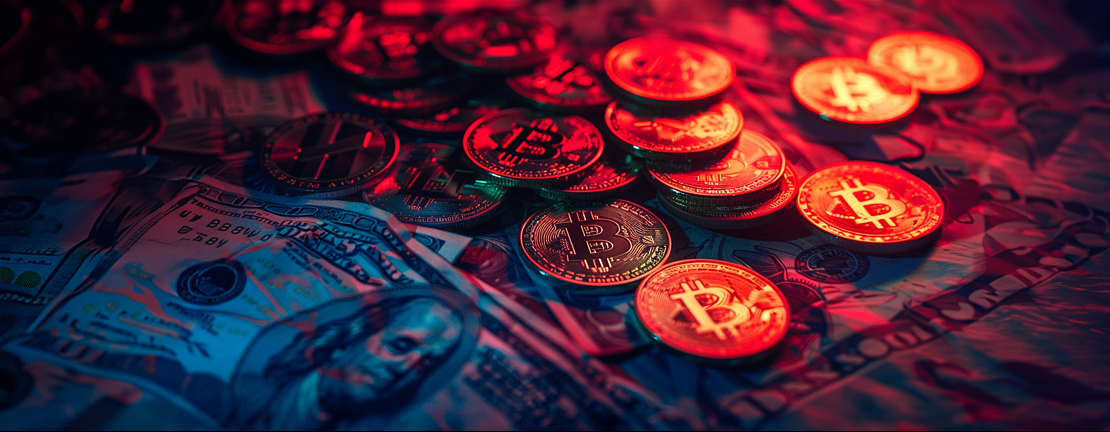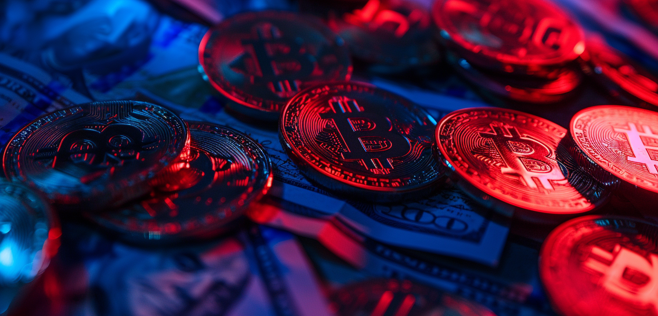Published 17 May 2024
Ratex.ai/
- Blog/
- DeFi/
- Navigating DeFi's Regulatory Landscape: Challenges, Opportunities, and the Path Forward
Navigating DeFi's Regulatory Landscape: Challenges, Opportunities, and the Path Forward

Decentralized finance, or DeFi, has emerged as a transformative force in the world of finance, leveraging blockchain technology to create open, transparent, and permissionless financial services. By eliminating intermediaries and democratizing access to financial tools, DeFi has the potential to reshape the global financial landscape and empower individuals worldwide. However, as DeFi continues to grow and evolve, it faces a complex and ever-changing regulatory landscape that poses challenges and opportunities for both projects and users.
Understanding the regulatory environment surrounding DeFi is crucial for several reasons. First, compliance with relevant laws and regulations is essential for projects to operate legally and avoid potential penalties. Second, navigating the regulatory landscape can help projects gain credibility and attract more users, investors, and partners. Finally, a clear understanding of the regulatory environment can enable users to engage with DeFi projects responsibly and minimize potential risks.

The Current State of DeFi Regulation
The global regulatory environment for DeFi is still in its early stages, with various countries taking different approaches to address the unique challenges and opportunities presented by this emerging sector. As DeFi continues to grow and gain mainstream attention, regulators worldwide are grappling with how to balance innovation, consumer protection, and financial stability.
Global regulatory approaches:
- Some countries, like the United States and the United Kingdom, have taken a cautious approach, providing guidance on specific aspects of DeFi while monitoring the space closely.
- Others, like Switzerland and Singapore, have adopted a more proactive stance, creating regulatory frameworks and sandboxes to encourage innovation in the DeFi space.
- In contrast, some countries, such as China and India, have imposed stricter regulations or outright bans on certain aspects of cryptocurrencies and DeFi.
Challenges and uncertainties:
- The rapidly evolving nature of DeFi makes it difficult for regulators to keep pace with innovation and provide clear guidance.
- DeFi's decentralized and borderless nature raises jurisdictional issues, making it challenging to enforce regulations consistently across different countries.
- The lack of clear regulatory guidance can create uncertainties for DeFi projects, potentially hindering their growth and development.
The global regulatory environment for DeFi is diverse and rapidly evolving, with various countries taking different approaches to address the challenges and opportunities presented by this emerging sector. The lack of clear and consistent regulatory guidance poses challenges for DeFi projects, creating uncertainties that can hinder their growth and development. As the DeFi ecosystem continues to mature, it is crucial for projects and users to stay informed about the evolving regulatory landscape and its potential impact on their activities.

Key Regulatory Challenges for DeFi
DeFi projects face several regulatory challenges that can significantly impact their operations and user experience. Some of the main challenges include:
- Securities laws
Regulators are grappling with whether certain DeFi tokens or assets should be classified as securities, which would subject them to stricter regulations and disclosure requirements. This uncertainty can make it difficult for DeFi projects to navigate the legal landscape and ensure compliance with relevant laws.
- Anti-money laundering (AML) and know-your-customer (KYC) requirements
DeFi's decentralized and pseudonymous nature can make it challenging for projects to comply with AML and KYC regulations, which are designed to prevent financial crimes such as money laundering and terrorist financing. Implementing these requirements can be complex and potentially undermine the privacy and permissionless ethos of DeFi.
- Consumer protection
Regulators are concerned about the potential risks DeFi poses to retail investors, such as smart contract vulnerabilities, market manipulation, and fraud. Ensuring adequate consumer protection while preserving the innovative potential of DeFi is a significant challenge for both projects and regulators.
These regulatory challenges can impact DeFi projects in various ways, such as limiting their ability to attract users and investors, increasing operational costs, and potentially exposing them to legal and reputational risks.

Opportunities in the Regulatory Landscape
Despite the challenges posed by the regulatory landscape, DeFi projects that successfully navigate these complexities can unlock several opportunities that contribute to their growth and long-term success. Some of these opportunities include:
- Increased legitimacy
By complying with relevant regulations, DeFi projects can enhance their credibility and legitimacy in the eyes of users, investors, and regulators. This can lead to broader adoption and increased trust in the DeFi ecosystem.
- Access to traditional financial markets
Compliant DeFi projects may find it easier to integrate with traditional financial institutions and access new markets, enabling them to expand their user base and offer a wider range of services.
- Enhanced user protection
By addressing regulatory concerns related to consumer protection, DeFi projects can create a safer and more secure environment for users, reducing the risk of financial losses and fostering greater trust in the ecosystem.
Several DeFi projects have already begun to navigate the regulatory landscape successfully. For example, some projects have implemented KYC and AML measures while maintaining a decentralized structure, demonstrating that compliance and innovation can coexist. Other projects have actively engaged with regulators, seeking guidance and clarification on their legal obligations to ensure compliance. These examples illustrate that, with the right approach, DeFi projects can overcome regulatory challenges and unlock new opportunities for growth and development.

The Path Forward: Balancing Innovation and Regulation
Striking the right balance between fostering innovation and ensuring regulatory compliance is crucial for the sustainable growth of the DeFi ecosystem. Achieving this equilibrium requires collaboration and understanding between DeFi projects, regulators, and other stakeholders. Several potential solutions and strategies can help facilitate this balance:
- Self-regulatory organizations (SROs)
DeFi projects can collaborate to establish SROs that develop and enforce industry standards, best practices, and guidelines. SROs can help promote self-regulation, foster trust among market participants, and provide a framework for engaging with regulators.
- Regulatory sandboxes
Regulators can create sandboxes that allow DeFi projects to experiment and test their products in a controlled environment with relaxed regulatory requirements. This approach enables projects to innovate while providing regulators with valuable insights into the potential risks and benefits of DeFi.
- Clearer guidelines from regulators
Regulators can issue clearer and more specific guidance on how existing regulations apply to DeFi projects, helping them understand their compliance obligations and navigate the regulatory landscape more effectively.
- Collaboration and dialogue
Encouraging open dialogue and collaboration between DeFi projects, regulators, and other stakeholders can help foster a better understanding of the unique challenges and opportunities presented by DeFi, ultimately leading to more informed and effective regulatory approaches.
By pursuing these strategies and solutions, the DeFi ecosystem can strike a balance between innovation and regulation, ensuring that it continues to grow and evolve while addressing the legitimate concerns of regulators and protecting users.

Best Practices for DeFi Projects and Users
To successfully navigate the regulatory landscape, DeFi projects and users should adopt best practices that ensure compliance, promote transparency, and minimize risks.
Best Practices for DeFi Projects
- Proactive communication with regulators
Engage with regulators early in the development process to seek guidance, clarify obligations, and build a cooperative relationship.
- Implementing compliance measures
Integrate appropriate KYC, AML, and other compliance measures into your project, taking into account the specific regulatory requirements of the jurisdictions in which you operate.
- Staying informed about regulatory developments
Regularly monitor and review regulatory updates, guidance, and enforcement actions to ensure that your project remains compliant and can adapt to changes in the regulatory landscape.
Best Practices for DeFi Users
- Due diligence
Research and assess DeFi projects thoroughly before engaging with them, considering factors such as their regulatory compliance, security measures, and track record.
- Risk management
Understand the risks associated with DeFi, including smart contract vulnerabilities, market volatility, and regulatory uncertainties, and manage your investments accordingly.
- Compliance with personal obligations
Ensure that you comply with any tax, reporting, or other regulatory obligations that arise from your participation in DeFi projects.
By adhering to these best practices, DeFi projects and users can navigate the regulatory landscape more effectively, ensuring the sustainable growth and development of the DeFi ecosystem.

Conclusion
DeFi's regulatory landscape is complex and evolving, presenting both challenges and opportunities for projects and users. By understanding the current state of regulation, the key challenges faced by DeFi, and the potential solutions and strategies for balancing innovation and regulation, stakeholders can navigate this landscape more effectively.
Adopting best practices and fostering collaboration and dialogue between DeFi projects, regulators, and other stakeholders will be crucial in shaping a regulatory environment that supports the growth and development of DeFi while protecting users and maintaining financial stability.
Read More




 Get RateX Pro
Get RateX Pro
 25 Apr 2024
25 Apr 2024
